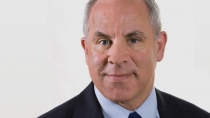Protecting Teens in Crisis: Constructive Oversight of Programs
One of the greatest challenges facing the struggling teen industry is the lack of conscientious, constructive, and sustained oversight at regular intervals by external organizations. Oversight may help prevent the occasional scandals and abuses that have occurred in some programs and schools. The principal challenge is to design oversight that does not produce a controlling, intrusive bureaucracy that stifles creativity and vision, drains staff attention from direct care and relationship building with teens, and merely produces tomes of meaningless paperwork.
The most ambitious attempt to address oversight and regulation issues comes from the Alliance for the Safe, Therapeutic, and Appropriate Use of Residential Treatment (ASTART) under the auspices of the University of South Florida (USF) and the Bazelon Center for Mental Health Law. In 2005 the organization sponsored a press briefing in Washington, D.C. about the urgent need for regulation of private residential treatment facilities. The allied organizations were seeking an investigation into these facilities by the Government Accountability Office. Among the compelling statements made at the briefing were these:
I have become increasingly alarmed by the reports of youth being transported hundreds, if not thousands of miles away from their home, often after being awakened in the middle of the night by hired “escorts,” to be taken to unlicensed and non-accredited residential programs that have somehow persuaded their desperate parents that they offer the best hope for helping their children. . . . I have heard from young adults who were in some of these programs as adolescents, from parents who sent their children to these programs, from former staff members of these programs, and from numerous journalists who have investigated these programs. . . .The stories of mistreatment, abuse, and even death within these programs have been so compelling that I could not turn away from trying to learn more. . . .
Many programs . . . are neither licensed by their state, nor accredited by independent national accreditation organizations, and . . . some of these programs are exploiting the desperation of parents, and mistreating the youth that they serve. The issue is that we don’t even know how many youngsters are living in these programs, or how many have died in them. . . .
We must ensure that programs that present themselves as serving children with special challenges are licensed by the state in which they are located, and accredited by independent national accrediting organizations. We recognize that even with oversight there will be tragedies but we view such oversight as one part of a multi-faceted effort to protect the safety and well-being of our young people.
—Robert Friedman, professor/chair, Department of Child and Family Studies, University of South Florida
Think of what youth must experience in programs where they are expected to live by standards common in the prisons for the worst offenders, or in the former Soviet gulag. Think of the impact when youth are subject to unskilled or abusive interventions for normative behaviors that violate rules that are supportive of healthy adolescent development. Think of the impact on those youth who have been beaten, raped, or physically harmed in programs where staff, who may not have the barest training or moral qualities to make them fit for working with youth, are out of control. Think of the impact on families when a troubled youth sent to such a program is returned in a coffin. Such is the situation in many so-called special schools and residential programs for troubled youth in this country.
It is our hope that we can see such terrible facilities closed down when examined and found lacking reasonable standards of care for troubled youth.
—Charles Huffine, M.D., child and adolescent psychiatrist
I am here today, not as just another concerned mental health professional, but as one who has worked within unregulated residential treatment facilities and experienced first-hand compelling concern for the inadequate and harmful care of youth in such facilities. . . .
I was sickened as I witnessed counseling staff at the 6 week wilderness intervention program be told that every child about to complete it should and must be referred to the 2-year programs at one of the 3 boarding schools, regardless of the clinical improvements they were supposed to have made during their . . . brief stay. I watched tearful mothers lament that they wanted to bring their child home to try to “repair” their relationship and rebuild—only to have program staff manipulate them by threatening that their child might end up in jail or dead if they didn’t send them to a boarding school.
Each day at this job brought new discomfort. Scared and confused, I called several governing organizations from a campus phone and whispered hushed concerns to agency representatives only to be told that emotional growth boarding schools in Idaho were not regulated at that time by their mental health or education agencies and that they could do nothing about my concerns.
—Nicki Bush, former program staff member

Frederic Reamer Ph.D. Bio
Dr. Reamer is a professor in the Graduate Social Work Program at Rhode Island College.
Learn More